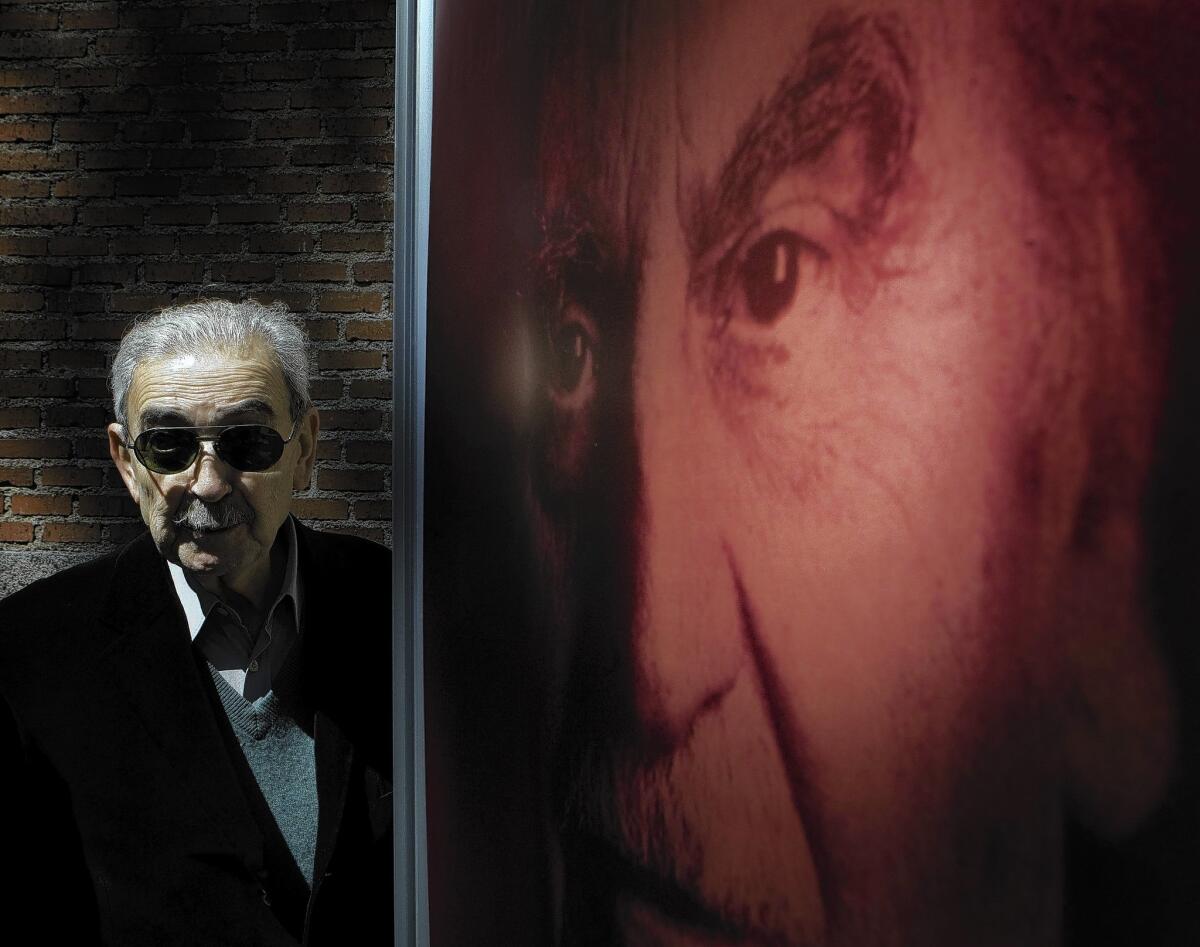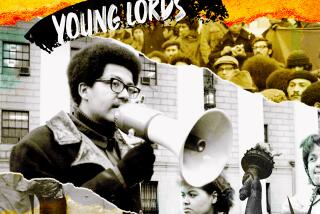Juan Gelman dies at 83; renowned Argentine poet and political exile

- Share via
Argentine poet Juan Gelman, an exile whose writings were colored by personal tragedy he suffered at the hands of his country’s brutal military dictatorship, died in Mexico City on Tuesday. He was 83 and had been battling leukemia.
Gelman, a leftist with working-class origins, won the Cervantes Prize, perhaps the most prestigious Spanish language literary honor, in 2007 for his stark, soulful verse.
But the son of Jewish Ukrainian immigrants also personified the tragedy suffered by thousands of Argentinian families under the 1976-1983 military dictatorship. His son Marcelo and pregnant daughter-in-law Maria Claudia were kidnapped in 1976 and then murdered by the junta.
The couple’s infant daughter was secretly given to a Uruguayan police officer and his wife for adoption. Through a source in the Roman Catholic Church, Gelman found out that his daughter-in-law had been permitted to live long enough to give birth, but it would take him 22 years to track his granddaughter down.
Gelman, who was abroad at the time of the military coup, was finally reunited with his granddaughter named Macarena, now 37, in 2000, after her adoptive parents disclosed the fate of her true parents.
Human rights groups estimate the junta took as many as 500 babies from their murdered parents and gave them up for secret adoption, often to police and armed forces families. Fewer than 150 have been identified and reunited with their true families.
Gelman was renowned in Mexico, where he lived in the capital’s Condesa district for more than 20 years.
“Juan Gelman, poet of the Mexican soul, major poet, has died. My condolences to his loved ones,” said Rafael Tovar y de Teresa, president of Mexico’s National Culture and Arts Council, via Twitter, the Associated Press reported.
Considered one of Argentina’s most important 20th century poets, Gelman also won the Juan Rulfo (2000), Pablo Neruda (2005) and Queen Sofía (2005) awards. He also contributed essays to many Latin American magazines and newspapers, notably Argentina’s Página/12 daily.
Gelman was born May 3, 1930, in Buenos Aires, the son of a Ukrainian Communist couple who immigrated to Argentina after becoming disillusioned with the Stalin regime.
His first poems were published at age 11. He studied chemistry at the University of Buenos Aires but gave up a scientific career to dedicate himself to literature, joining the so-called New Poetry movement in the 1950s.
Influenced by the success in 1959 of the Cuban Revolution, Gelman joined militant leftist groups. He was arrested in 1963 for having joined the outlawed Communist Party.
Upon his release, Gelman began working as a journalist and editor on left-leaning magazines including Panorama, La Opinión and Noticias, which was tied to the radical guerrilla group Montoneros.
Gelman was on a foreign public relations tour for the Montoneros to highlight alleged human rights abuses when the military pulled off its coup d’etat in 1976. Some 30,000 people are thought to have been murdered, kidnapped and tortured during the seven-year reign of terror.
Gelman spent the rest of his life in exile in Rome, Madrid, Managua, Paris, New York and Mexico, where he worked as a United Nations translator. Gelman renounced his membership in the Montoneros in 1979, which provoked the radical group to accuse him of treason and sentence him to death.
Even after democracy was restored to Argentina in 1983, Gelman remained a wanted man for his pre-coup political activities, which aroused protests among many Latin American writers, including Gabriel Garcia Marquez and Octavio Paz.
Finally in 1988, his arrest warrant was nullified and Gelman returned to Argentina that summer for the first time in 13 years. A year later, Gelman was pardoned by President Carlos Menem, but he preferred to maintain his home in Mexico.
Argentina’s President Cristina Fernández de Kirchner declared three days of mourning in Gelman’s honor.
Special correspondents Kraul and D’Alessandro reported from Buenos Aires.
More to Read
Start your day right
Sign up for Essential California for the L.A. Times biggest news, features and recommendations in your inbox six days a week.
You may occasionally receive promotional content from the Los Angeles Times.







